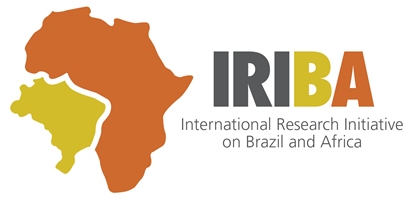Policy in Focus: The Brazilian model of Development
By Armando Barrientos and Edmund Amann. Originally published in Policy In Focus, a publication of the UNDP’s International Policy Centre for Inclusive Growth. As the world begins to wake up to the dire social and economic consequences of rising inequality, we must recognise that it is
Watch: The Brazilian development model debated
Last week, we teamed up with Johns Hopkins SAIS to debate the Brazilian development model and its potential implications for African countries. Watch the event:
Bridging the urban-rural divide in Africa
The next edition of the African Economic Outlook will investigate how to bridge the urban-rural divide in African countries. With many African states struggling to translate impressive headline rates of economic growth into tangible improvements for the poorest people living in rural
Event: A Brazilian model of development?
We’re teaming up with the Johns Hopkins School of Advance International Studies (SAIS) in Washington to hold a debate on the Brazilian model of development and its implications for African countries. Brazil has emerged as a globally significant economic power in the last decade,
New UNU-Wider paper on the Brazilian development model
At the start of the IRIBA project a year ago, co-research directors Armando Barrientos and Ed Amann presented their initial thinking on the Brazilian model and its implications for African countries to a UNU-Wider conference on inclusive growth. With the first phase research no
How Brazil has reduced inequality
The sustained decline in Brazilian inequality levels has been of the most striking aspects of its development performance over the last 10 years. In addition to raising an estimated 40 million people out of poverty, the Brazil’s GINI coefficient fell by 12%, from 0.59 in 1995 to 0.52
Is there a new Brazilian development model?
IRIBA’s research directors, Armando Barrientos and Ed Amann draw together the conclusions from the first phase of the project. Cross posted from ELDIS. Brazil’s ascent to prominence on the international economic stage has been a prolonged affair. Perhaps the most curious featur
September 29, 2014
Could Brazil’s approach to vocational training help generate jobs in Africa?
Professor Stephan Klasen is head of the Ibero-America Institute for Economic Research at the University of Göttingen and co-author of the IRIBA working paper on the impact of SENAI vocational training in Brazil and its implications for African countries. This year’s meeting of t
Inequality, inclusion & infrastructure: Register for our LSE event
With the initial IRIBA research programme close to completion, we’re looking forward to taking the show on the road and discussing our findings from Brazil – and their potential for African countries. On Friday September 12 we’re running a workshop at the London Scho
Behind the scenes of Brazil’s South-South cooperation
After President Lula made South-South cooperation a priority, Brazil began to enhance its relationships with African countries using a variety of channels. Brazil opened 35 new embassies across Africa during his tenure, with ambassadors taking a proactive role in developing ties. Comb
12
© IRIBA 2014 | All rights reserved I Google+
Hosted by The Brooks World Poverty Institute
